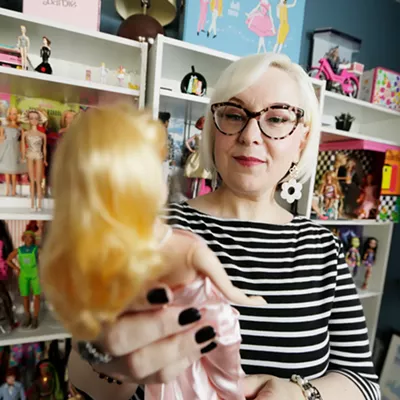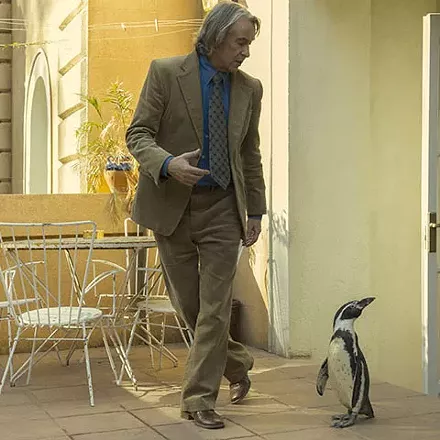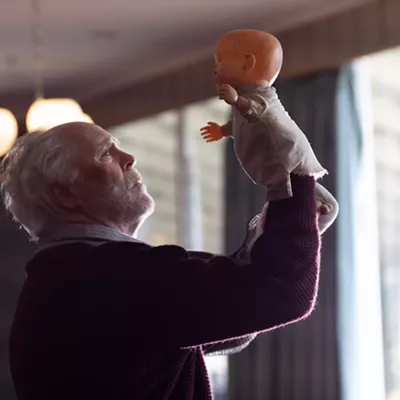Who is Barbie? Why is Barbie? And Ken? Well, he's just Ken. But more importantly, what is Barbie?
Yes, it is a movie that has become one of the year's most anticipated big releases with ubiquitous trailers and marketing giving way to memes galore getting in on the fun. But who is the Barbie behind this Barbiemania? Both a beloved toy and a huge brand, she has become an integral part of growing up with her many contradictions still on full display in stores across America. She is built to be aspirational, having more jobs than most anyone would know what to do with, but also unattainable, a perfect version of what it means to be a woman in the eyes of Mattel.
The latest film from director Greta Gerwig — who previously did great work on 2017's Lady Bird and 2019's Little Women (that now seems quaint in comparison to this) — makes this persona her point of entry and draws from many a past film as a means by which to explore this. In a script she co-wrote with partner Noah Baumbach (whose recent absurdist cinematic adaptation White Noise would make for a fascinating double feature with this), the humor all stems from the light deconstructions of the doll and all she has come to represent. The film is playfully humorous and often quite sharp, with many brief asides suddenly cutting deeper into more intriguing thematic territory, though Barbie remains oddly restrained. Its loving visual references just leave you wishing you were watching those other films. It's at its best in the beginning and the end, but the movie is undone by a middle section where gags give way to convention that constrains any attempts at subversiveness.
Some of this is by design, as the fantasy world of Barbieland gets juxtaposed with our human world, but much of this is rather scattered in a way that lessens the impact of the journey.
Fighting this battle against convention is the so-called "stereotypical" Barbie, perfectly played with a mixture of sincerity crossed with a somberness by Margot Robbie, who begins having an existential crisis and can no longer live amongst the other Barbies. She then sets out with a stowaway Ken, embodied by a fully committed Ryan Gosling, to go to the real world to find out the origin of her discontent and return to her beloved Barbieland restored. The film's formal interests can be summed up with a brief reference to Jacques Tati's delightful 1967 film PlayTime that quickly passes as we return to a standardly shot and constructed comedy.
Much of the trouble with Barbie comes from the way the film has tried to oversell itself. Many of the best jokes and even entire sequences have been revealed before the film was even released. While there are other structural issues, on a pure question of the experience's entertainment value, there was far too little withheld for the film itself that ought to have been. While watching it, save for a few moments toward the end, you feel like you've already seen it. The majority of what you haven't viewed in ads and trailers feels broadly sketched.
Namely, there is some breaking of the fourth wall that attempts to have an earned go at everything from Mattel to the patriarchy itself that Barbie and Ken learn about in the real world. With Will Ferrell doing his predictable shtick as Mattel's buffoonish CEO, it is hard not to think of The Lego Movie, as he plays a similar character in both self-reflexive films. Each acknowledges how they're extensions of a brand and bring a healthy animosity to that with key moments in Barbie feeling like they might be pushing us somewhere a bit more challenging. Ken's story is where this is most in action, but it also sees the film increasingly pull its punches.
This occurs in a manner that was to be expected while also in ways that were not, with a fun vulgarity from an underutilized character that is literally censored by a Mattel logo capturing the film's general ethos. Does this constitute one more self-aware gag or is it genuinely about protecting the brand so we focus on other superficial references? Forget it, Ken. It's Barbieland. ♦


























